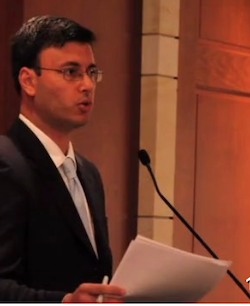Public Health Emergency
See the following -
Bill Gates Won’t Save You From The Next Ebola
Robert Fortner | Huffington Post | April 30, 2017
In late August 2014, Tom Frieden, then director of the Centers for Disease Control and Prevention, traveled to West Africa to assess the raging Ebola crisis. In the five months before Frieden’s visit, Ebola had spread from a village in Guinea, across borders and into cities in Liberia and Sierra Leone. Médecins Sans Frontières, the first international responder on the scene, had run out of staff to treat the rising numbers of sick people and had deemed the outbreak “out of control” back in June...
- Login to post comments
Global Bio-Disaster Response Urgently Needed In Ebola Fight
By Médecins Sans Frontières | September 1, 2014
World leaders are failing to address the worst ever Ebola epidemic, and states with biological-disaster response capacity, including civilian and military medical capability, must immediately dispatch assets and personnel to West Africa, the international medical humanitarian organization Médecins Sans Frontières (MSF) announced today in a special briefing at the United Nations organized by the office of the UN Secretary General and the World Health Organisation (WHO). Read More »
The Sequoia Project’s Emergency Preparedness Information Workgroup Publishes Health IT Pandemic Response Planning Recommendations - The Sequoia Project
Press Release |
The Sequoia Project |
February 28, 2022
 The Sequoia Project’s Emergency Preparedness Information Workgroup (EPIW) today published Pandemic Response Insights and Recommendations, a free whitepaper for local, state, and federal emergency preparedness and public health officials and their partners. The workgroup, consisting of emergency preparedness, response, and public health experts, convened over several months to discuss gaps in current solutions. The workgroup recommended ways to make information more readily available to support a more robust and coordinated response to future emergencies.
The Sequoia Project’s Emergency Preparedness Information Workgroup (EPIW) today published Pandemic Response Insights and Recommendations, a free whitepaper for local, state, and federal emergency preparedness and public health officials and their partners. The workgroup, consisting of emergency preparedness, response, and public health experts, convened over several months to discuss gaps in current solutions. The workgroup recommended ways to make information more readily available to support a more robust and coordinated response to future emergencies.
- Login to post comments
Using Open Technology To Build a Biodefense Against the Coronavirus
By Shastri Purushotma | February 3, 2020
 As the number of US cases of the coronavirus rises, how will healthcare professionals be able to tell the difference between which panicked patients with similar symptoms has what? Even if the patient hasn't traveled to Wuhan or China recently, what if they sat at a Starbucks with someone who did? With the incubation time-lag before symptoms appear, who would even know? The challenge of monitoring 330 million people for infectious disease outbreaks is daunting. Take the flu as an example. During the last flu season which, as already discussed, was not as complex as this year's season, approximately 35.5 million Americans had flu symptoms, 16.5 million received medical care, 490,600 were hospitalized and 34,200 died.
As the number of US cases of the coronavirus rises, how will healthcare professionals be able to tell the difference between which panicked patients with similar symptoms has what? Even if the patient hasn't traveled to Wuhan or China recently, what if they sat at a Starbucks with someone who did? With the incubation time-lag before symptoms appear, who would even know? The challenge of monitoring 330 million people for infectious disease outbreaks is daunting. Take the flu as an example. During the last flu season which, as already discussed, was not as complex as this year's season, approximately 35.5 million Americans had flu symptoms, 16.5 million received medical care, 490,600 were hospitalized and 34,200 died.
- Login to post comments
WHO Declares Ebola An International Health Emergency
By Mićo Tatalović | August 9, 2014
The director-general of the World Health Organization (WHO) has proclaimed the Ebola outbreak in West Africa as a Public Health Emergency of International Concern, triggering an urgent international step-up in the response to the crisis, which it now sees as a serious threat to other countries, too. Read More »
- Login to post comments